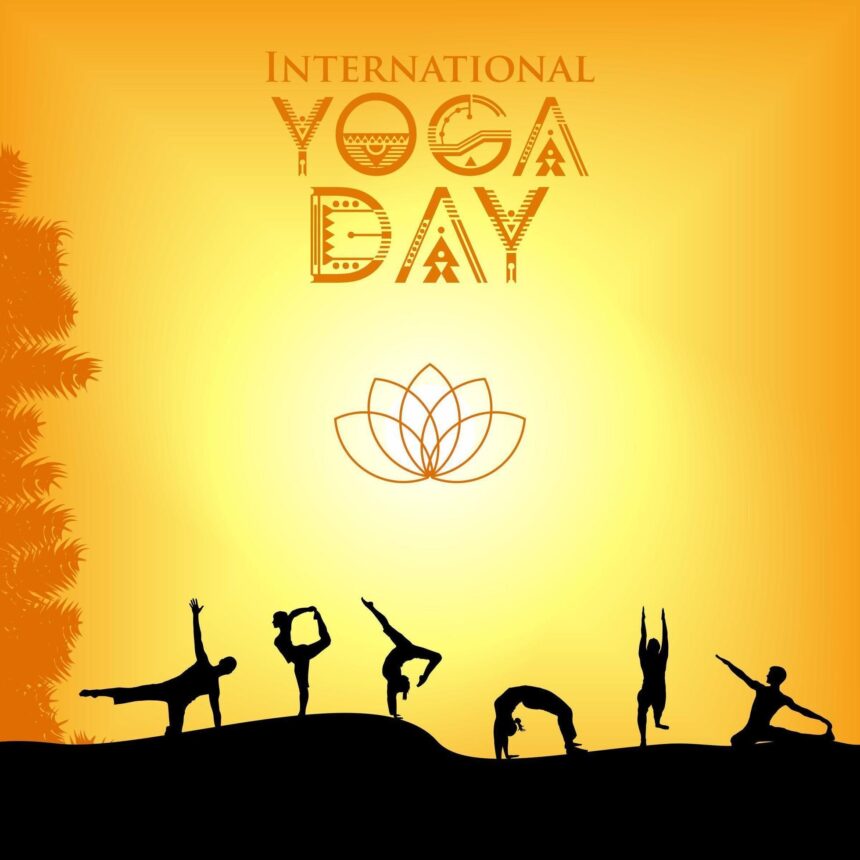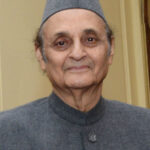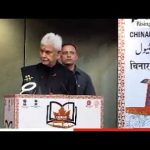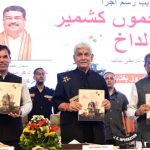INTERNATIONAL YOGA DAY
India, known as Bharat, has seen a significant transformation in its global image over the past decade. Historically, India was often stereotyped as a land of snake charmers, a perception that was perpetuated during the long years of Congress rule. However, since 2014, there has been a marked change in how the world views India, thanks to various strategic initiatives and developments under the leadership of Prime Minister Narendra Modi.
One of the most significant symbols of this transformation is the celebration of International Yoga Day. This event has not only highlighted India’s rich cultural heritage but also its growing influence in promoting global health and well-being. The practice of yoga, an ancient Indian discipline, has now become a global phenomenon, symbolizing peace, love, and holistic health.
The Historical Context and the Perception Shift
In the decades between the 1930s and 1970s, India was often seen through the lens of its exotic and mystical traditions. The image of snake charmers was one such stereotype that overshadowed India’s rich cultural and intellectual heritage. This perception was compounded by the fact that many Indians bore the physical marks of vaccinations against various pandemics, a reminder of a time when the country relied heavily on international aid for healthcare.
However, the scenario has drastically changed in recent years. India has emerged as a global leader in the pharmaceutical industry, particularly in vaccine production. During the COVID-19 pandemic, India not only developed its own vaccines but also supplied them to numerous countries, showcasing its capabilities and commitment to global health. This shift from being a recipient of aid to becoming a provider of crucial medical supplies has significantly altered India’s image on the world stage.
Yoga, Cultural Renaissance
The inception of International Yoga Day in 2015, proposed by Prime Minister Narendra Modi and endorsed by the United Nations, marked a pivotal moment in India’s cultural diplomacy. Celebrated on June 21st, this day has become a global event, uniting millions of people across various countries in the practice of yoga.
Yoga, which originated in India thousands of years ago, is more than just a physical exercise. It is a holistic practice that promotes mental, physical, and spiritual well-being. The widespread acceptance and practice of yoga worldwide underscore India’s soft power and its ability to contribute positively to global culture and health.
In 2024, the celebration of Yoga Day in Kashmir, with Prime Minister Modi himself participating, sent a powerful message. It symbolized the return of peace and normalcy to a region long troubled by conflict. This event was not just about promoting yoga; it was a testament to the government’s commitment to integrating Kashmir into the national mainstream and ensuring its development and stability.
The Broader Impact on India’s Global Standing
The celebration of International Yoga Day is part of a broader strategy to rebrand India on the global stage. Under Prime Minister Modi’s leadership, India has focused on various initiatives that showcase its strengths and capabilities. For instance, the country’s proactive approach during the COVID-19 pandemic, including the distribution of Hydroxychloroquine and vaccines, demonstrated India’s ability to contribute to global health crises effectively.
Moreover, the concept of “VasudhaivaKutumbakam,” meaning “the world is one family,” has been a guiding principle in India’s foreign policy. This philosophy emphasizes global unity and cooperation, which is reflected in India’s efforts to provide medical aid and support to other countries during times of need. Such actions have helped India build a reputation as a responsible and compassionate global player.
Yoga as a Symbol of Peace and Unity
Yoga, by its very nature, promotes peace, love, and unity. It is a practice that transcends cultural and national boundaries, bringing people together in the pursuit of well-being. By promoting yoga globally, India has positioned itself as a champion of these universal values.
In the context of Kashmir, the practice of yoga holds particular significance. The region has experienced prolonged periods of conflict and unrest. The celebration of Yoga Day in Kashmir, with the presence of the Prime Minister, signifies a new era of peace and development. It reflects the government’s commitment to the principles of “Insaniyat” (humanity), “Jamhooriyat” (democracy), and”Kashmiriyat” (the cultural and social harmony of Kashmir).
This event is a part of the broader efforts to integrate Kashmir into the national fold and ensure that its residents enjoy the same opportunities and benefits as those in other parts of the country. By focusing on development and peace, the government aims to fulfil the promises made during the abrogation of Article 370 in August 2019.
The Vision for Modi 3.0
As Prime Minister Narendra Modi embarks on his third term, his vision for India includes a special focus on Kashmir. The priorities for this term, often referred to as Modi 3.0, emphasize the development and integration of Kashmir within the framework of democracy, cultural harmony, and humanity.
Yoga, as a practice, encapsulates these values perfectly. It is a tool for promoting mental and physical health, fostering community spirit, and bridging cultural divides. By prioritizing yoga and other developmental initiatives in Kashmir, the government aims to create a conducive environment for peace and prosperity.
The transformation of India’s image from a land of snake charmers to a global leader in health and wellness is a testament to the country’s progress and strategic initiatives. International Yoga Day, celebrated worldwide, symbolizes this transformation and highlights India’s cultural heritage and soft power.
The celebration of Yoga Day in Kashmir, with the active participation of Prime Minister Narendra Modi, underscores the government’s commitment to peace, development, and integration of the region. It sends a strong message that the new Kashmir is a place of opportunity and growth, aligning with the broader vision of Modi 3.0.
Through the promotion of yoga and other initiatives, India continues to strengthen its global standing, contributing to the well-being of the world and fostering a sense of global unity and cooperation. The journey from being perceived as a recipient of aid to becoming a provider of solutions showcases India’s resilience and its emerging role as a key player on the global stage.
(The writer is Spokesperson of BJP (Jammu and Kashmir). Feedback: [email protected])










